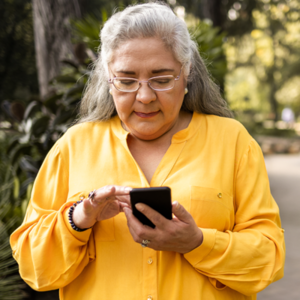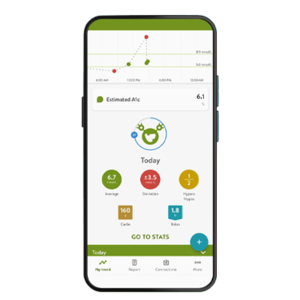Charlotte lives in Buckinghamshire and was diagnosed with type one diabetes in 2011. Like many people living with diabetes, she was unwell on the run up to her diagnosis for some time. She recalls two years of feeling generally unwell, which escalated into feeling tired all the time, extreme thirst, feeling hungry and shaky, before her diagnosis was eventually reached.
Charlotte then learned that living with type one diabetes can be difficult. There are so many factors to consider when it comes to managing diabetes and it can be hard to know where to start.
Whilst healthcare professionals do their best to support patients, the average person with diabetes spends only three hours a year with a healthcare professional, meaning they spend most of the time self-managing the condition1. Finding ways to help you to self-manage your diabetes in a way that works for you is important.
For the past two years Charlotte has been using the mySugr app to help her manage her diabetes. The mySugr app helps to reduce the burden of managing diabetes with easy logging of blood sugar, meals, medications and carbohydrates.
“The mySugr app has really helped me start to understand my diabetes better, especially in recent months. Since using the app I have definitely become more interested in my control – I take more interest in my blood sugars, what I'm eating, the insulin, and medications I’m taking.”
Charlotte
As someone with diabetes, everything that you do, eat and drink has an effect on your blood glucose. In the short term, high blood glucose levels can make you feel really low in energy. Over a longer period of time regularly high blood glucose levels can increase your risk of serious complications, things like eye, kidney and foot problems. Because of this it is important for you to keep your blood glucose levels within your target range.
If you want to understand more about how the mySugr app can help you to spend more time in your ideal blood sugar target range, find out more here.




